The Devoted Desert Dweller: A Comprehensive Guide to Gerbils as Fascinating Pets
Gerbils, with their soft fur, inquisitive noses, and playful antics, have captivated pet lovers for decades. Often mistaken for miniature hamsters, gerbils boast a unique personality and social nature that make them cherished companions. But before welcoming these delightful desert dwellers into your home, a deeper understanding of their lifespan, care requirements, and fascinating behaviours is essential. This comprehensive guide delves into the world of gerbils, empowering you to provide a loving and enriching environment for your furry friend.
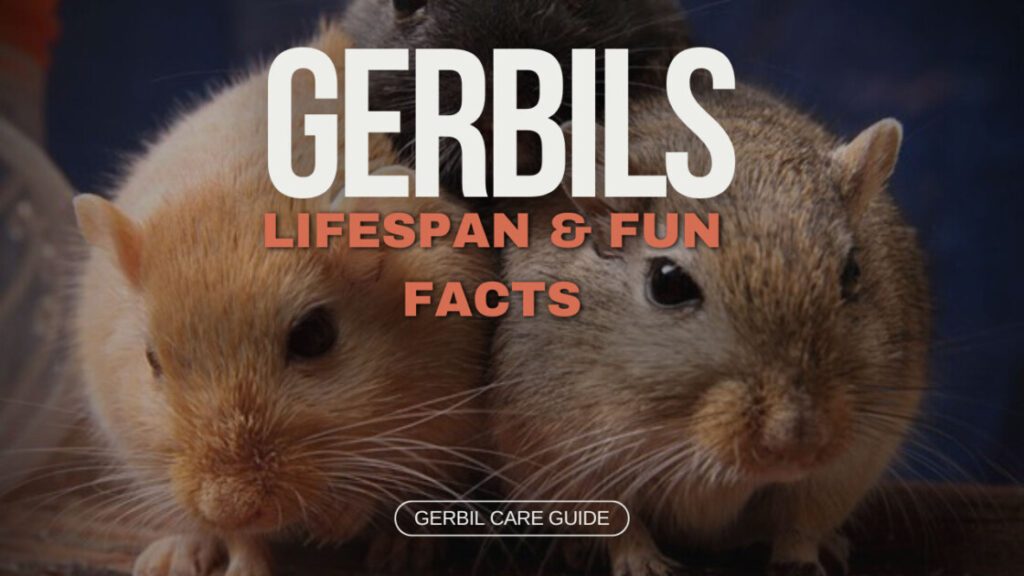
Unveiling the Gerbil’s History: A Journey from the Wild
Gerbils hail from the arid regions of Africa and Asia, where they thrive in desert ecosystems. These social creatures live in complex burrow systems, digging tunnels and chambers for shelter, food storage, and raising young. Their burrowing instincts, keen sense of smell, and powerful hind legs are adaptations that have helped them survive in harsh desert environments.
Domesticated Delights: The Evolution of Gerbils as Pets
The history of gerbils as pets can be traced back to the early 20th century. Their playful nature, ease of care, and relatively short lifespan made them a popular choice for research and later, for pet ownership. Selective breeding led to the development of various coat colours and patterns, adding to their appeal.
Lifespan Unveiled: Understanding the Gerbil’s Timeframe
The average lifespan of a gerbil falls between 2 and 4 years. However, with exceptional care, good genetics, and a healthy environment, some gerbils can even reach 5 years of age. Factors influencing a gerbil’s lifespan include:
- Genetics: A gerbil’s inherent health is influenced by its genetic background. Responsible breeders prioritize healthy breeding stock to ensure strong lifespans for their gerbils.
- Diet: A balanced gerbil diet rich in essential nutrients plays a crucial role in promoting a gerbil’s health and longevity. Avoid sugary treats and processed foods, opting for a high-quality gerbil mix, fresh hay, and occasional fruits and vegetables.
- Exercise and Enrichment: Providing opportunities for exercise through a spacious habitat with climbing structures and a wheel helps gerbils stay active and mentally stimulated. This can contribute to their overall well-being and potentially extend their lifespan.
- Veterinary Care: Regular checkups with a veterinarian experienced in exotic pets are crucial. Early detection and treatment of potential health issues can significantly impact a gerbil’s lifespan.
Beyond the Numbers: Recognizing Signs of a Healthy Gerbil
A healthy gerbil exhibits a vibrant personality. They are typically active, curious, and have a healthy appetite. Here are some signs to watch for:
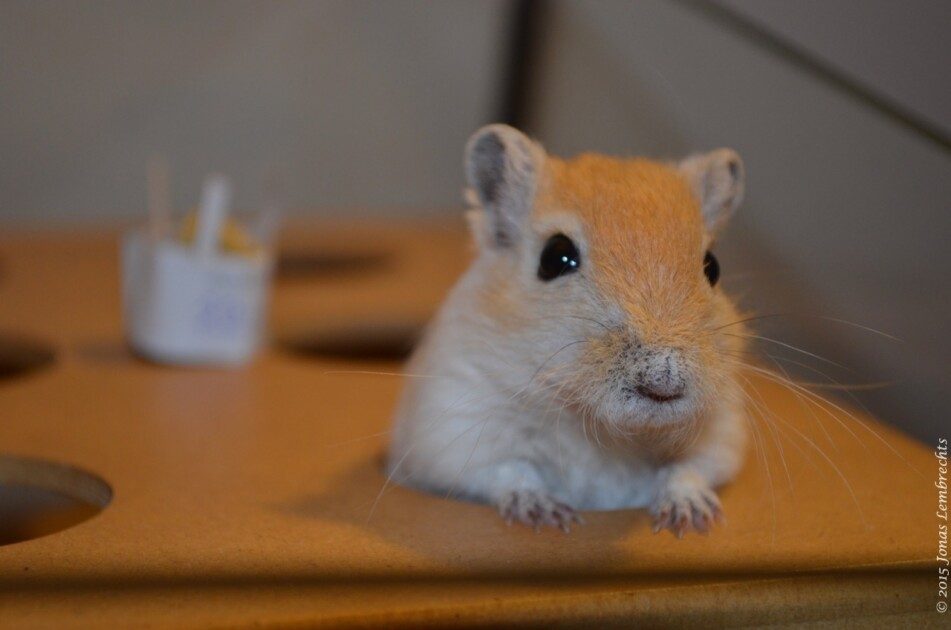
- Bright Eyes and Shiny Coat: A gerbil’s eyes should be bright and clear, and their fur should be soft and glossy.
- Clean Nose and Ears: Their nose and ears should be clean and free of discharge.
- Regular Activity Levels: Gerbils are naturally active creatures. They should spend time exploring their cage, running on their wheel, and engaging in playful behaviours.
- Healthy Appetite: A healthy gerbil will show a steady interest in food and maintain a healthy weight.
Creating a Gerbil Paradise: The Essentials of Gerbil Care
Gerbils are social creatures who thrive in pairs or small groups of the same sex (neutered males or females). To ensure their happiness and well-being, provide them with a comfortable and stimulating environment:
- Spacious Habitat: A cage size of at least 10 gallons per gerbil is recommended. Opt for a multi-level cage to provide ample space for climbing and burrowing.
- Bedding: Choose soft, absorbent bedding like aspen shavings or recycled paper pellets. Avoid cedar shavings, as they can irritate a gerbil’s respiratory system.
- Hiding Spots: Gerbils appreciate having cosy hideouts to feel secure. Provide them with nesting boxes, tunnels, or cardboard tubes.
- Exercise Essentials: A running wheel is a must-have for gerbils. Climbing structures, chew toys, and digging boxes can also help keep them mentally and physically stimulated.
- Food and Water: Provide a food dish filled with a high-quality gerbil mix and a water bottle with fresh, clean water at all times.
Gerbil Gastronomy: A Guide to a Balanced Diet
A balanced gerbil diet is essential for their health and longevity. Here’s what to include:
- Gerbil Mix: sugary treats. Look for mixes rich in pellets, seeds, and dried vegetables.
- Fresh Hay: Hay provides essential fibre for a gerbil’s digestive system and helps keep their teeth worn down naturally. Choose timothy hay or a mix of meadow hays.
- Fruits and Vegetables: Offer fresh fruits and vegetables as occasional treats, but in small quantities. Wash them thoroughly and remove any seeds or pits. Suitable options include apples, carrots, broccoli florets, and berries.
Building a Bond: Fostering a Fulfilling Relationship with Your Gerbil
Gerbils are intelligent and social creatures who can form strong bonds with their human companions. Here are some tips to build a trusting and enriching relationship with your gerbil:
- Gentle Handling: Gerbils are small and can be easily startled. Handle them gently, allowing them to initiate contact and build trust.
- Supervised Playtime: Dedicate daily playtime outside their cage in a safe, escape-proof area. Offer them enriching toys and supervise their interactions to ensure their safety.
- Talk and Sing: Talking to your gerbils in a calm and soothing voice helps them get accustomed to you. Singing or humming can also be a calming presence for them.
- Respect Their Needs: Gerbils need time to adjust to new environments and can be easily stressed. Allow them to retreat to their hiding spots when needed and avoid loud noises or sudden movements.
Understanding Gerbil Behavior: A Peek into Their Fascinating World
Gerbils communicate with each other through a complex system of vocalizations, body language, and scent marking. Here’s a glimpse into their fascinating communication methods:
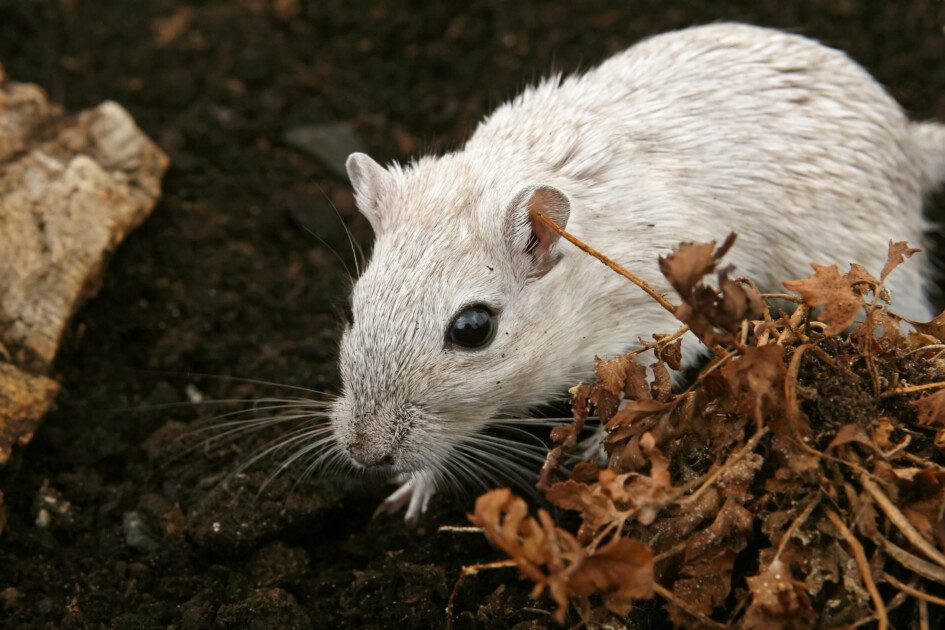
- Vocalizations: Gerbils chirp, squeak, and chatter to communicate with each other. These sounds can express excitement, fear, or contentment.
- Body Language: A gerbil’s posture and tail position can reveal their mood. A relaxed posture with a lowered tail indicates calmness, while a hunched posture with a raised tail might signal fear or aggression.
- Scent Marking: Gerbils use scent to mark their territory and identify other gerbils. They have scent glands on their bellies and cheeks that they use for this purpose.
Gerbil Enrichment: Keeping Your Furry Friend Mentally Stimulated
Gerbils are naturally curious and intelligent creatures. Providing them with enrichment activities helps to prevent boredom, promote mental stimulation, and keep them physically active. Here are some enrichment ideas:
- Rotating Toys: Regularly rotate their toys to keep things interesting. Provide them with digging boxes filled with shredded paper or hay, foraging toys filled with treats, and chew toys made from safe materials like wood or cardboard.
- Obstacle Courses: Create mini obstacle courses inside their cage using cardboard boxes, tunnels, and climbing structures.
- Hidden Treats: Hide small treats around their cage to encourage them to explore and use their natural foraging instincts.
- Safe Exploration Time: Provide them with supervised exploration time outside their cage in a safe, gerbil-proofed area.
Gerbil Health Concerns: Recognizing and Addressing Potential Issues
Like any pet, gerbils can be susceptible to certain health problems. Here are some common health concerns in gerbils and signs to watch out for:
- Diarrhea: This can be caused by dietary changes, bacterial infections, or parasites.
- Respiratory problems: Dusty bedding or exposure to drafts can irritate a gerbil’s respiratory system.
- Skin problems: Skin mites or allergies can cause itching and scratching.
- Dental problems: Overgrown teeth can be a problem in gerbils. Providing them with chew toys can help keep their teeth worn down naturally.
If you notice any signs of illness in your gerbil, consult a veterinarian experienced in exotic pets promptly.
Responsible Pet Ownership: Beyond the Basics
Gerbils are a rewarding addition to any household. However, responsible pet ownership goes beyond providing them with basic care. Here are some additional considerations:
- Lifelong Commitment: Remember, gerbils can live for several years. Before welcoming them into your life, ensure you can provide them with a loving home throughout their lifespan.
- Never Release Gerbils into the Wild: Domesticated gerbils lack the survival skills necessary to thrive in the wild. Never release them into the wild, as they can become invasive and harm native ecosystems.
- Research and Preparation: Before acquiring gerbils, thoroughly research their care requirements and ensure you have the proper supplies and habitat ready for their arrival.
Finding Your Perfect Gerbil Pal: Responsible Sourcing Options
With a deeper understanding of gerbils and their needs, you’re ready to welcome a furry friend into your life. Here are some responsible options for finding your perfect gerbil companion:
Reputable Breeders:
- Prioritize Health and Well-being: Look for breeders who prioritize the health and well-being of their gerbils. They should be knowledgeable about gerbil care and answer your questions about their breeding practices.
- Meet the Parents: If possible, request to meet the gerbil’s parents to assess their temperament and overall health.
- Hygiene and Care: The breeder’s facility should be clean and well-maintained, with gerbils housed in spacious, hygienic cages.
Animal Shelters and Rescue Organizations:
- Giving a Second Chance: Many shelters and rescues have gerbils available for adoption. These gerbils may be abandoned or surrendered for various reasons. Offering a loving home to a gerbil in need is a rewarding experience.
- Variety of Options: Shelters often house various gerbil breeds and ages. You might find the perfect match for your lifestyle and preferences.
- Adoption Process: The adoption process involves an application and a fee that helps the shelter care for other animals.
Online Marketplaces (Proceed with Caution):
- Research Thoroughly: While online marketplaces can offer gerbils for sale, proceed with extreme caution. Thoroughly research the seller’s reputation and ensure they prioritize responsible breeding practices.
- Ask Questions: Don’t hesitate to ask the seller detailed questions about the gerbil’s health, temperament, and lineage.
- Meet Before You Commit: If possible, arrange to meet the seller and gerbil in person before committing. This allows you to assess the gerbil’s health and living conditions.
Also Read –
उद्याचे हवामान कसे असेल ? | हवामान उद्या पाऊस वेळ टेबल| हवामान कसे आहे बघा
राजकारण मराठी टोमणे | राजकारण सुविचार | चला राजकारणात 2024-25
हे आहेत लिंबू पाणी पिण्याचे फायदे| गरम पाण्याचे फायदे आणि तोटे 2024
- भारतीय मौसम विज्ञान विभाग (IMD): मौसम पूर्वानुमान, चेतावनी प्रणाली और जलवायु रिपोर्ट 2026 [पूर्ण जानकारी]
- जामताड़ा में अगले 10 दिनों का मौसम: आसान और भरोसेमंद जानकारी
- राजकारण म्हणजे काय? | संपूर्ण माहिती मराठीत 2025
- Genuine Work From Home Jobs in India 2025: Companies, Salaries & Application Process
- 7वां केंद्रीय वेतन आयोग (सीपीसी) और रक्षा बल: संपूर्ण मार्गदर्शिका 2025
Choosing Your Gerbil:
Regardless of where you acquire your gerbil, consider these aspects when choosing your furry friend:
- Age and Temperament: Young gerbils (around 6-8 weeks old) tend to be easier to tame. Consider your lifestyle and preferences when choosing a gerbil’s temperament (active, playful, or more relaxed).
- Health: Observe the gerbil’s overall health. They should be active, alert, and have a clean, shiny coat.
- Gender Considerations: Gerbils are typically housed in same-sex pairs (neutered males or females) to prevent unwanted litters. However, single gerbils can thrive if provided with ample attention and interaction.
Bringing Your Gerbil Home: Setting Up for Success
Once you’ve found your perfect gerbil companion, it’s time to prepare their new home:
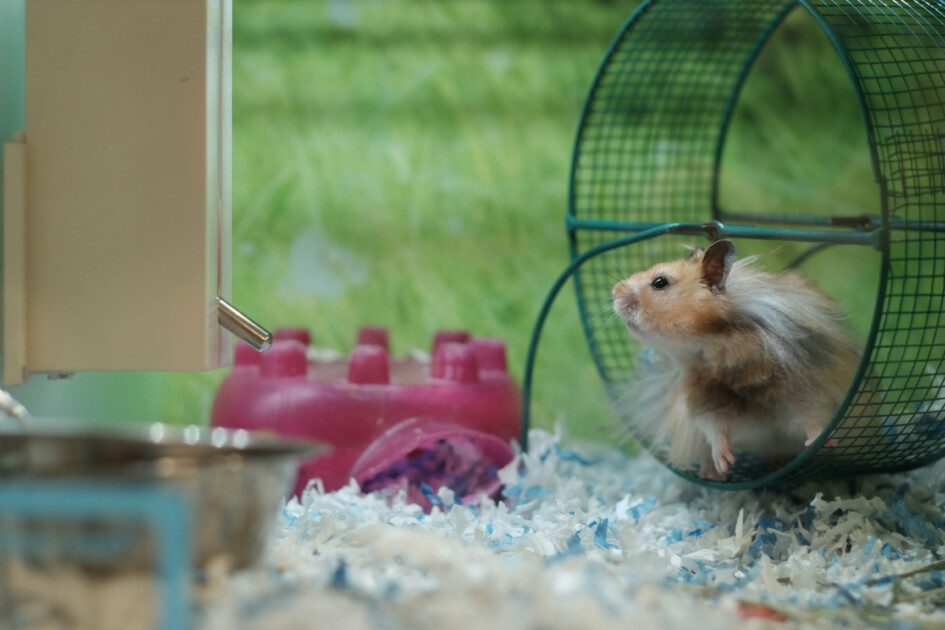
- Cage Placement: Choose a location for their cage that is quiet, draft-free, and out of direct sunlight.
- Deep Clean and Sanitize: Thoroughly clean and sanitize their cage before introducing them.
- Essential Supplies: Ensure all the necessary supplies are available, including food, water, bedding, hiding spots, a wheel, and chew toys.
- Acclimatization Period: Allow your new gerbil a few days to adjust to their new surroundings before handling them.
Gerbil-Specific Resources:
- The Gerbil Society: http://gerbils.co.uk/ (A website dedicated to gerbils, offering information on care, behaviour, and health)
- Gerbil World: https://m.youtube.com/watch?v=g93ZOnrQ8Vc (Another website providing detailed information on gerbil care and breeding)
The Joy of Gerbil Companionship: A Rewarding Journey
Gerbils, with their playful personalities and curious nature, can be delightful companions. By understanding their needs, providing them with proper care, and fostering a trusting bond, you can create a fulfilling and enriching life for your furry friend.
This comprehensive guide empowers you to make informed decisions about gerbil ownership. Remember, responsible pet ownership is paramount, ensuring these charming desert dwellers have the opportunity to live happy, healthy lives.
Gerbil FAQs: Unleashing the Answers!
This FAQ section complements the comprehensive guide on gerbils, providing quick answers to common questions potential gerbil owners might have:
How long do gerbils typically live?
The average lifespan of a gerbil falls between 2 and 4 years, with exceptional care potentially extending it to 5 years.
What are the essential aspects of gerbil care?
Providing a spacious habitat, proper diet, daily interaction, and a clean environment are crucial for a gerbil’s well-being.
What signs indicate a healthy gerbil?
Bright eyes, a shiny coat, regular activity levels, and a healthy appetite are all signs of a happy and healthy gerbil.
Where can I find gerbils for sale?
Reputable breeders, animal shelters, and rescue organizations are responsible options for acquiring gerbils.
What should I consider when choosing a breeder?
Prioritize breeders who prioritize gerbil health, well-being, and responsible breeding practices. Ask questions about the gerbil’s lineage and temperament.
What are the advantages of adopting from a shelter or rescue?
Shelters and rescues offer gerbils in need a loving home. You might find a gerbil that perfectly matches your preferences and lifestyle.
How do gerbils communicate?
Gerbils use vocalizations (chirps, squeaks), body language (posture, tail position), and scent marking to communicate.
What can I do to keep my gerbil mentally stimulated?
Rotate toys, create obstacle courses, hide treats, and provide supervised exploration time outside the cage to keep your gerbil engaged.
Do gerbils need companions?
Yes, gerbils are social creatures who thrive in pairs or small groups of the same sex (neutered males or females).
Where can I find more information about gerbil care?
Consult reputable websites of veterinary organizations or animal welfare groups specializing in exotic pets.
Remember: This FAQ section provides a quick reference. The main article offers a more detailed exploration of each topic.

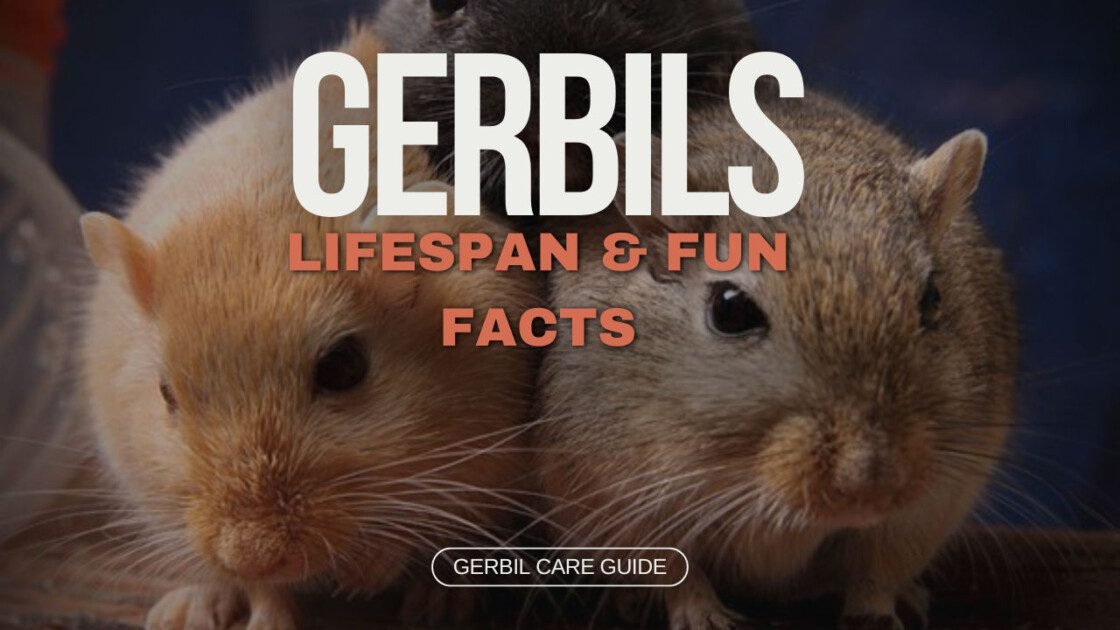
![भारतीय मौसम विज्ञान विभाग (IMD): मौसम पूर्वानुमान, चेतावनी प्रणाली और जलवायु रिपोर्ट 2026 [पूर्ण जानकारी]](https://marathibanna.com/wp-content/uploads/2026/01/भारतीय-मौसम-विज्ञान-विभाग-IMD.webp)







